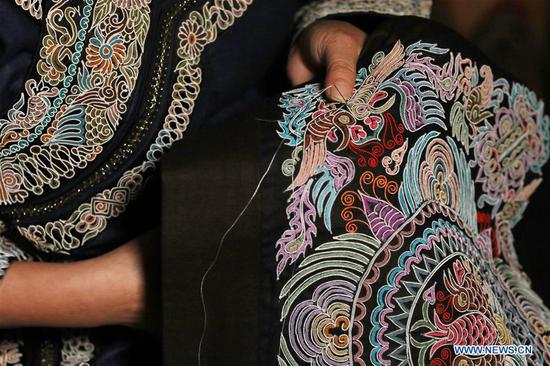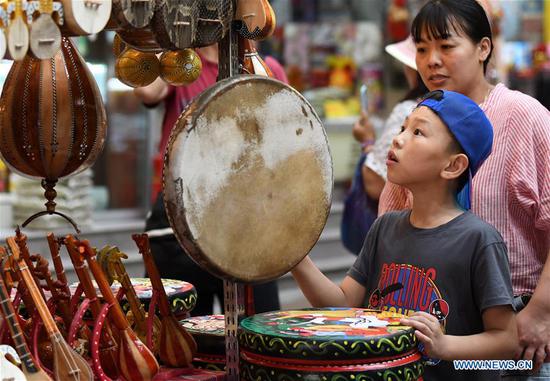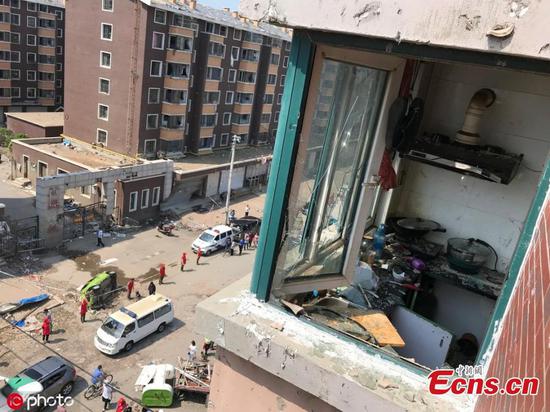More cities are introducing domestic garbage management regulations, following the practice in Shanghai on July 1.
The Ministry of Housing and Urban-Rural Development published a trash sorting program including 46 pilot cities, of which nine have introduced the regulations. Beijing is the first city in the legislative framework, China Central Television (CCTV) reported on Saturday.
A four-category approach will be adopted in more than three quarters of the 46 pilot cities, in which trash will be sorted into kitchen waste, hazardous waste, recyclable items and other waste.
Some regions have used different category names to make it easier for people to understand how to group their trash. For instance, dry trash in Shanghai is called recyclable waste in Beijing.
Shanghai's strict regulation on garbage sorting has set a positive example. Local governments should implement garbage sorting based on the practical situation, suggested Xu Haiyun, a senior engineer of the ministry.
Most cities have enacted legislation on garbage sorting and clarified penalties for individual violations of regulations, which could incur a maximum penalty of 200 yuan. Companies found to be engaging in illegal dumping will be fined a maximum of 50,000 yuan.
Taiyuan, capital of North China's Shanxi Province, Tongling, East China's Anhui Province and Hangzhou, capital of Zhejiang Province, have set up additional credit punishment measures for illegal garbage disposal. Actions that hinder law enforcement will be filed in credit records according to the law.
As of July 6, Shanghai authorities have issued 190 fine notifications including 15 cases involving individual refusals and food and beverage store operators, news site thepaper.cn reported Sunday.


















































